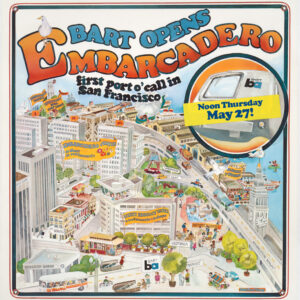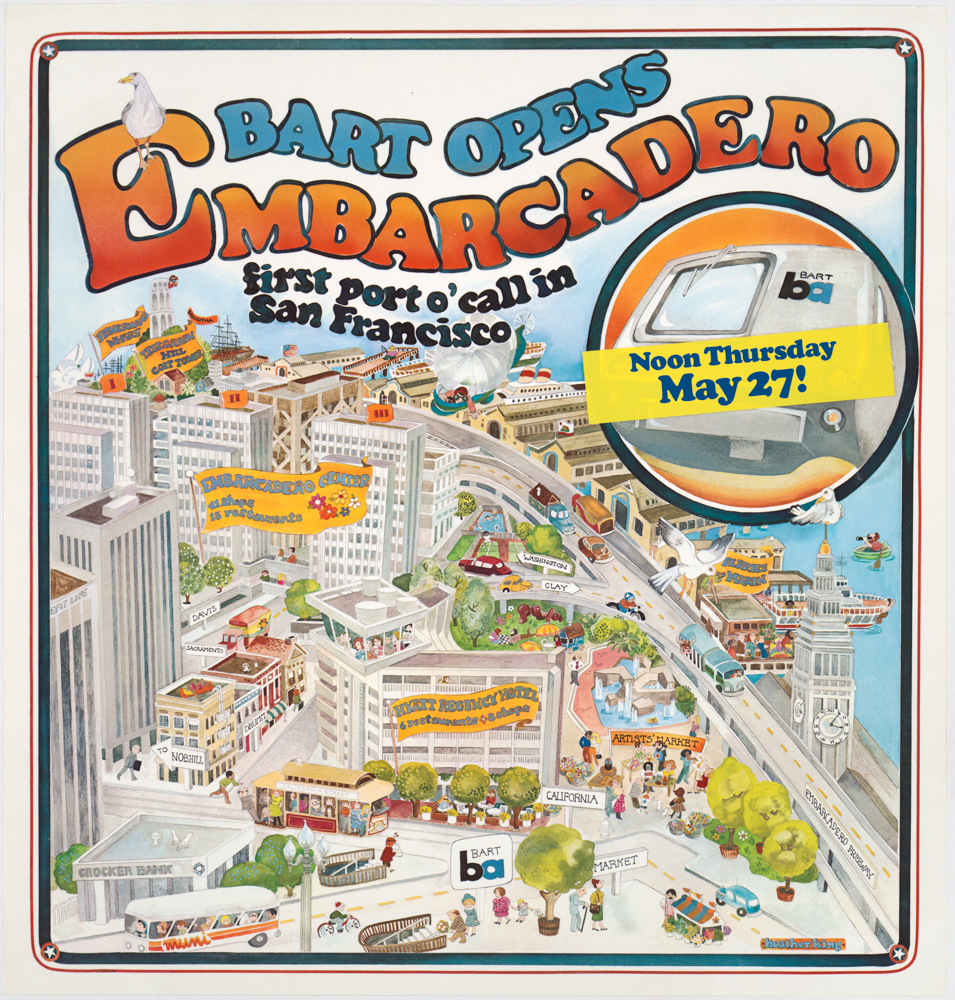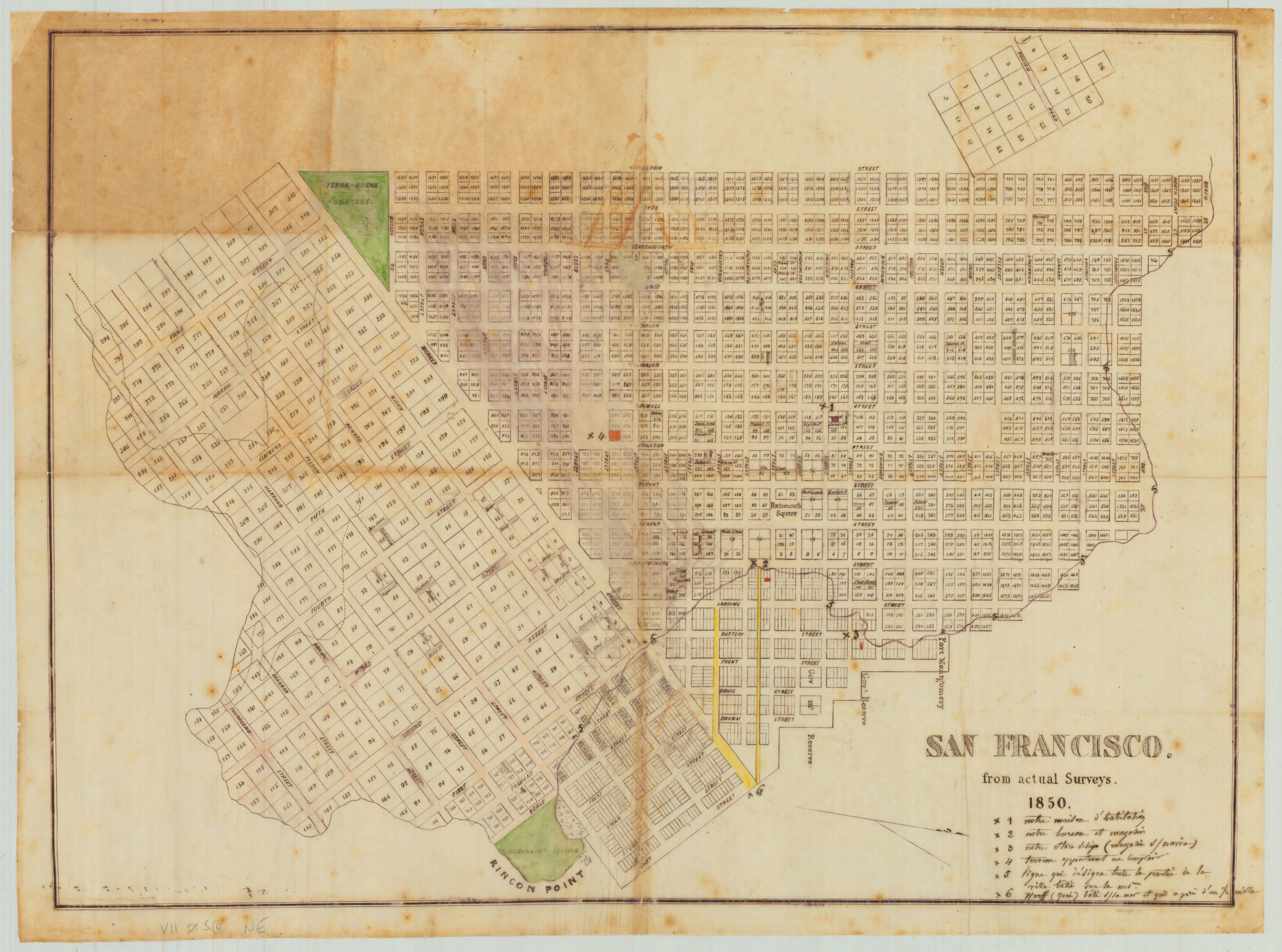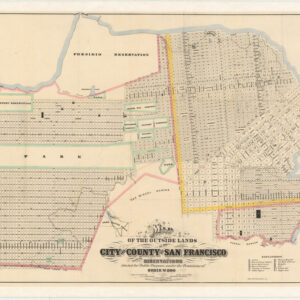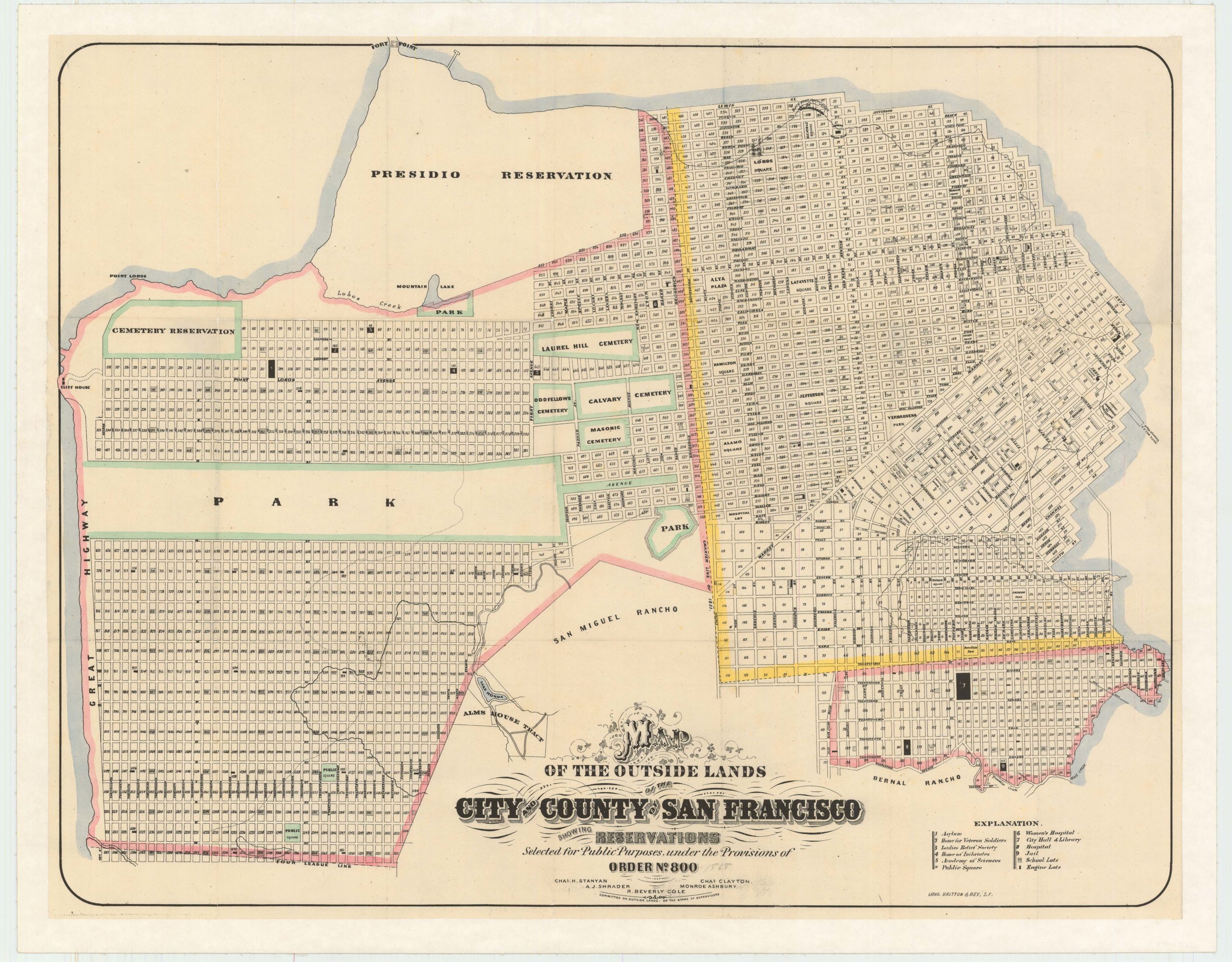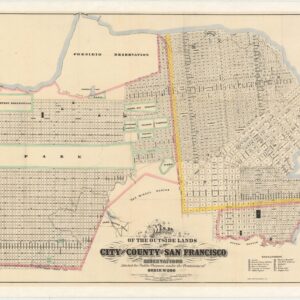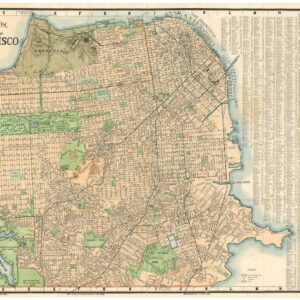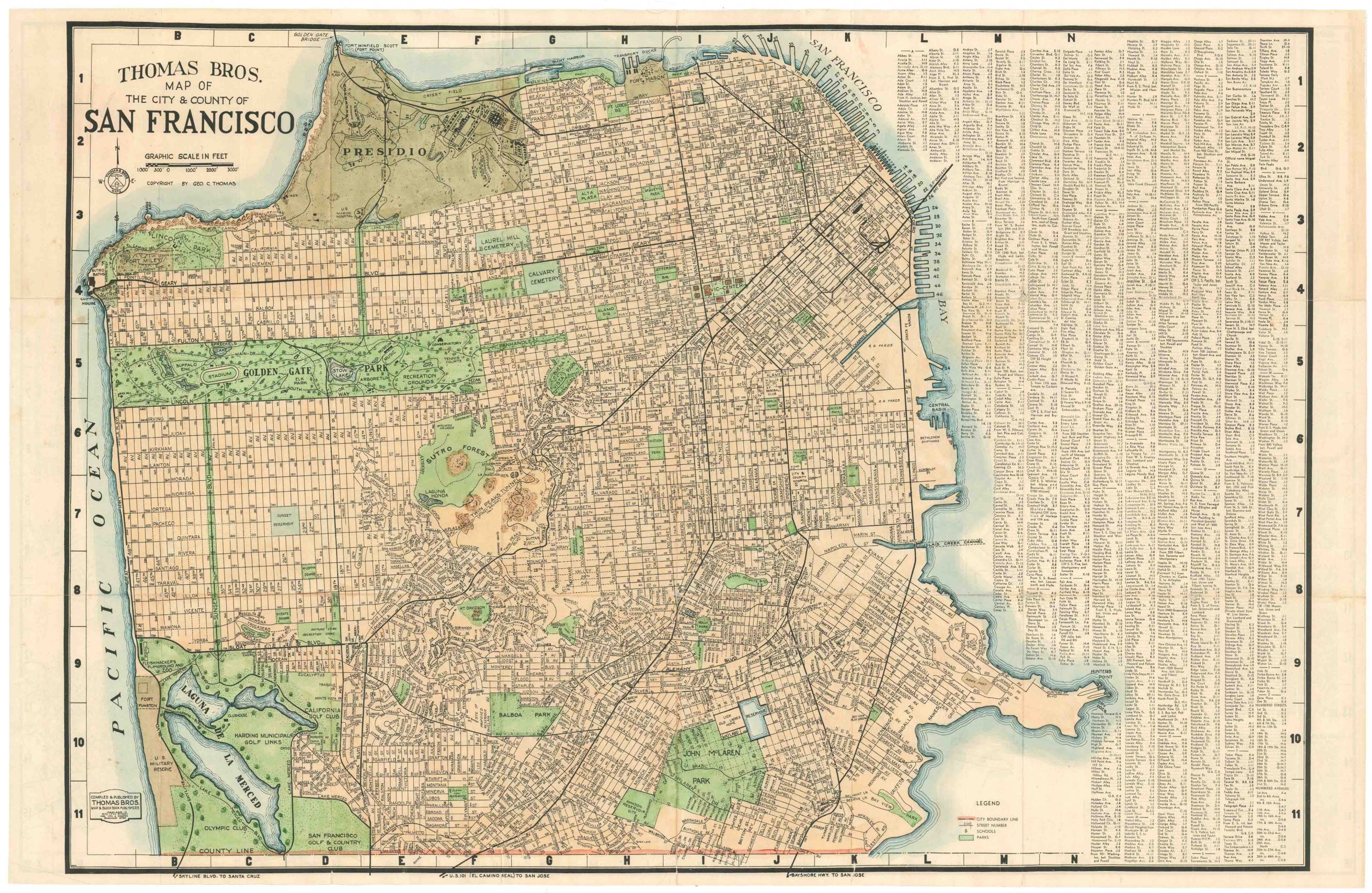An 1893 commercial broadsheet for the real estate development at Sutro Heights – the site of San Francisco landmarks like the Sutro Baths and Cliff House.
Map of Sutro Heights Lots for Sale by Will E. Fisher and Co. Agents.
$650
1 in stock
Description
This charming map of the Vista del Mar neighborhood of San Francisco was published as part of the promotional material for a large real estate project known as Sutro Heights, after San Francisco mayor and silver magnate Adolph Sutro. Today, the plots delineated in this map lie in the area between Geary Boulevard and Fulton Street, west of the Richmond district.
The map depicts a conceptual urban landscape consisting of plots organized in neighborhood blocks and regularly interspersed with a more or less orthogonal road network. In the left of the image, facing the water, we see the original Sutro Heights, the residence that Alfred Sutro built for himself on the northwest tip of the San Francisco promontory. Fronting his private estate was the famous Sutro Baths, a public bathing facility executed to the highest standards (discussed further below) and formally opened just a few years after this development map was published.
To the east of Sutro Hill and Cliff House, an elaborate urban neighborhood was planned, directly connected to the facilities built by Sutro but also to the Government Reservation and Park to the north. We see city blocks set down along a network of streets, and many of these individual plots have also been delineated. Some of the blocks already have a planned purpose, such as the elongated plot furthest to the northwest, which was to serve as the location for a luxury hotel with views overlooking the Pacific Ocean.
While his ambitions were grand, Sutro struggled to get his land holdings sold at a profit, and after constructing both his iconic second Cliff House, the Sutro Baths, and the railway from the center of town out to Point Lobos, funds began running low. At the same time, he had become more and more involved in city politics, eventually serving as mayor of San Francisco between 1895 and 1897.
Context is everything
There are three important characters in the history of San Francisco that stand out in relation to this map. One is, of course, the printer, Canadian-born Edward Bosqui, who built a vital lithography and printing company in town. The two others are Adolph Sutro and a dynamic and ambitious real estate agent by the name of Will E. Fisher.
The land used for this development project had been initially bought in 1881 by one of the great money-makers of the post-Gold-Rush era. Adolph Sutro, a Jewish engineer from Germany, had struck it big in the Comstock Lode and was by the early 1880s an exceedingly wealthy man. He was known and is often referred to in historical texts, as San Francisco’s Silver Baron. Sutro later became the first Jewish mayor in U.S. history, but when this project was conceived and developed, he was “still” just one of the city’s wealthy benefactors looking to expand his fortune through speculative investment.
Sutro put a considerable part of his wealth into purchasing land, which he then intended to develop for commercial purposes. This was nevertheless a drawn-out process that soon left him with extensive land holdings but few funds to develop them properly. Around what is currently Sutro Heights Park – a promontory overlooking the Pacific – he built a range of significant buildings during the early 1890s. These included the splendid new Cliff House, as well as the enormous public baths, and an amusement park, all of which could be reached by passenger steam trains from the inner city. Like the Sutro Baths and the Cliff House, the train line is actually depicted on the map, despite still being in the making. Inland from here, land plots were developed in a modern-looking orthogonal street grid.
In order to sell some of his extensive land holdings, Sutro employed real estate agent Will E. Fisher of the firm Tevis and Fisher in San Francisco. Fisher was a dominant figure in the real estate market during the 1890s, as evidenced by countless advertisements in local newspapers. For some of the larger development projects in which he was involved – like the project at Sutro Heights – Fisher commissioned large broadsheets by the Bosqui printing company. The map in question is precisely one such example.
The Sutro Heights project was one of Fisher’s last great development projects, and both his success and ambition are reflected in the high quality of this presentation sheet. Within a few years, however, Fisher’s firm would close following allegations of embezzlement and amid rumors of drunkenness. After his wealthy wife divorced him, and with creditors at his heels, Fisher escaped to the Klondike, presumably in the hopes of etching out a new fortune prospecting for gold.
Census and publication history
This map was produced in 1893 by the Bosqui Engraving and Printing Company on behalf of the Will E. Fisher Real Estate Company. All surviving examples would have been among the original distribution, as any additional stock would have perished in the 1893 fire that destroyed Bosqui’s stores. Consequently, the map is scarce, and not many copies have come to market in the last decades.
The OCLC (no. 61060709) lists five examples in institutional collections at the libraries of Columbia, Stanford, Yale, U.C. Berkeley, and the California Historical Society.
Cartographer(s):
Edward Bosqui (1832–1917) was a Canadian artist and engraver born in Montreal. In 1850, he emigrated to California, eventually settling in San Francisco, where he became a well-known patron of the arts.
Little is known about Bosqui’s early life and training, but in 1863 he founded the Bosqui Engraving and Printing Company in San Francisco. Being a boom town, his firm did well in the beginning, living off the ample advertising opportunities that San Francisco and California presented. During this period of commercial success, Bosqui also dedicated himself to promoting culture – in particular, the arts. He was, among other things, a founding member of the San Francisco Art Association, which later would become the San Francisco Art Institute and which still exists today as the city’s Museum of Modern Art.
Bosqui’s success was not to last, though. In 1893, during one of the great conflagrations in early San Francisco (probably the Thomas Dye Works fire on August 9th), the Bosqui Engraving and Printing Company burnt to the ground. Four years later, another fire within the city destroyed his home.
Condition Description
Excellent.
References
